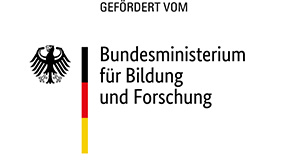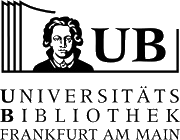Bewertung einer prozessbegleitenden Qualifizierung zur inklusiven Schul- und Unterrichtsentwicklung durch die teilnehmenden Lehrkräfte
Evaluation of a process-accompanying qualification for inclusive school and classroom development by the participating teachers
DOI:
https://doi.org/10.21248/qfi.128Schlagworte/Keywords
Angebots-Nutzungs-Modell, Fortbildung, Professionalisierung, Inklusion, Lehrkräfte, offer-and-use-model of teacher training, professional Deve, inclusion, teachersZusammenfassung
Die Erweiterung professioneller Handlungskompetenz von Lehrkräften durch Fortbildungsmaßnahmen zur erfolgreichen Umsetzung schulischer Inklusion wird häufig diskutiert. Da die Professionalisierung in der ersten (Studium) und zweiten (Referendariat) Phase der Lehrkraft(aus)bildung nicht als abschließend gilt, besteht der Bedarf der gezielten und planvollen Erweiterung dieser in der dritten Phase (berufsbegleitend) der Lehrer*innenbildung. Dies soll durch Fortbildungsmaßnahmen, konzipiert auf Basis des Forschungsstands zu wirksamen Fortbildungsmaßnahmen und des erweiterten Angebots-Nutzungs-Modells zur Erklärung beruflichen Lernens von Lehrkräften nach Lipowsky (2014), erreicht werden. Eine konkrete Überprüfung der Modellannahme zu Einflussfaktoren auf die Bewertung und Wirksamkeit von Fortbildungen existiert bislang nicht. Ziel des vorliegenden Beitrags ist es deshalb in einem ersten Schritt die Faktorenstruktur (Prädiktoren) des Modells zu prüfen. Anschließend wird mittels eines regressionsanalytischen Vorgehens untersucht, ob diese Prädiktoren zur Vorhersage der Fortbildungsbewertung durch Lehrkräfte geeignet sind. Die Ergebnisse bestätigen die angenommene Faktorenstruktur. Diese erweist sich auch über die einzelnen Fortbildungsmodule hinweg als stabil. Weiterhin zeigten sich Zusammenhänge zwischen personenbezogenen Voraussetzungen sowie der Qualität/Wahrnehmung und Nutzung des Angebots und der Bewertung der Fortbildung, während dies für die Kontextfaktoren fraglich blieb. Abschließend werden die Ergebnisse diskutiert und in den bisherigen Forschungsstand eingeordnet.
Abstract
The expansion of teacher competence through professional development for the successful implementation of inclusion is often discussed. Since professionalization in the first (studies) and second (traineeship) phase of teacher training is not considered final, there is a need for targeted and planned expansion of this in the third phase (in-service) of teacher training. This is to be achieved through professional development, based on the research of effective professional development and the offer-and-use-model of teacher training according to Lipowsky (2014). A concrete evaluation of the model and factors that influence the rating and effectiveness of professional development does not yet exist. Therefore, the aim of this paper is to test the model’s factor structure (predictors) as a first step. Subsequently, a regression analysis is used to examine whether these predictors are suitable for predicting the rating by teachers. The results confirm the assumed factor structure which also proves to be stable across the individual training modules. Furthermore, correlations between personal prerequisites, the quality/perception and the use of the offer, as well as the evaluation of the in-service training, were found, while they remained questionable for the contextual factors. Finally, the results are discussed and placed in the current research.
Downloads
Veröffentlicht
Ausgabe
Rubrik
Lizenz
Copyright (c) 2023 Jule Behr, Karolina Urton, Johanna Krull, Pawel Kulawiak, Thomas Hennemann

Dieses Werk steht unter der Lizenz Creative Commons Namensnennung - Keine Bearbeitungen 4.0 International.



